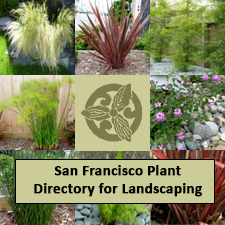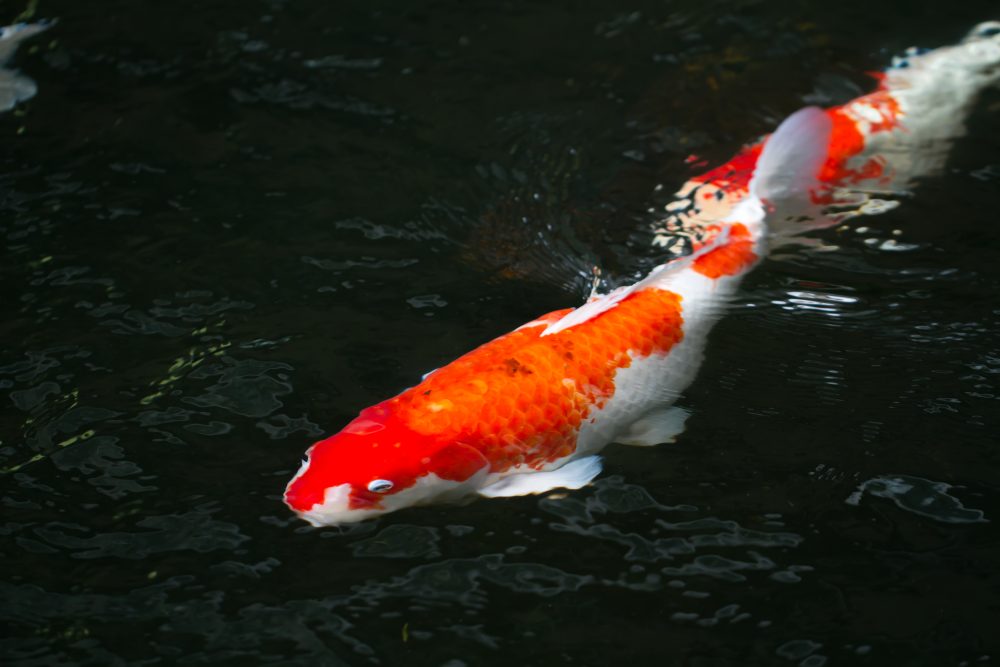
Water features are a common addition to most Japanese garden designs, whether that water feature is a trickling fountain, a tiny stream, or a mini Japanese Koi pond. As one of the five elements, water represents the flowing, fluid things in nature and constant renewal. It’s part of Onmyōdō: the Yin to stone’s Yang, creating a balanced landscape.
If the garden space permits, I love the beauty of the Japanese Koi pond. The flow of the water is calming in and of itself, but nothing lends itself to meditation and relaxation like watching the sleek bodies of Koi slowly slip through the water. Called the “brocaded carp,” or Nishikigoi, these ornamental fish are nature’s decorative touch to your Japanese garden.
So Many Varieties of Koi, So Little Space
Depending on where you live in San Francisco your Koi pond will be limited in size, which is an important consideration when choosing your fish.
Size
There are many variations of Koi, and they range from 12 to 36 inches at maturity. Domestic Koi are the smallest variety, growing approximately 12 to 15 inches long. Japanese Koi are the next biggest, reaching about 26 inches long, and jumbo Koi grow to about 36 inches long.
Although a three-foot Jumbo Koi can bend in half to turn around, you wouldn’t want to keep one in a one-foot wide Koi pond, so size is definitely something to keep in mind. Koi need lots of room to move around, so the bigger the pond the better. A good rule of thumb is 250 – 300 gallons per Koi if you have the domestic variety, and 400 – 500 gallons per Koi if you have the Japanese variety. If you have Jumbo Koi, you’ll need 750 – 900 gallons.
-And remember, this is per fish. A tank smaller than the needs of the fish won’t keep it from growing, it will just slow that growth.
Hardiness
Domestic Koi have a tendency to be hardier than Japanese Koi, at least in the States. Most likely, this is due to them already being acclimated to the temperatures and parasites in the U.S. versus the Japanese Koi, which are bred in Japan (and thus more susceptible to disease). This doesn’t mean you can’t get Japanese Koi, only that there are additional concerns to keep in mind if you do.
Cost
Japanese Koi are an excellent edition to your Japanese Koi pond, and not just because of the name. They grow bigger, with better and bright colors than Koi from any other location in the world. However, if you’ve never raised Koi before, you may want to start with Domestic, as the cheaper variety. Japanese Koi are much like cats and dogs; they come with pedigreed versions with generations of history. They’re an investment, living up to 20 or more years.
Too Coy for Koi – Fish, That Is
Koi are beautiful fish, ranging in colors, patterns and scales. They come with or without scales. Some have scales that shine like a mirror, while others look like they’re made out of metal. They range in size and cost, hardiness and level of care. An excellent addition to your Japanese garden and a great investment in the quality of your R&R, the right variety will give you viewing pleasure for many years to come.
Ready to add a Koi pond to your Japanese garden? Contact Tamate Landscaping. We specialize in creating Asian styled gardens that fit your San Francisco landscape.



